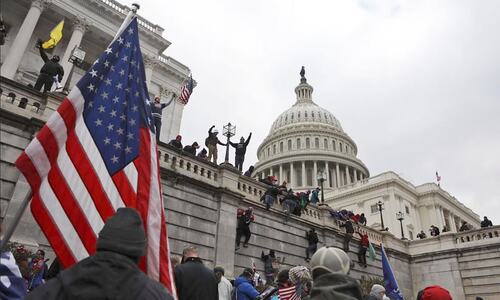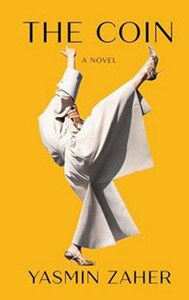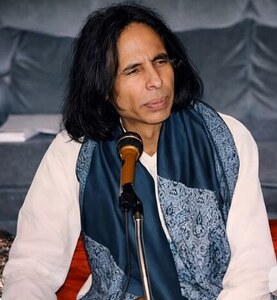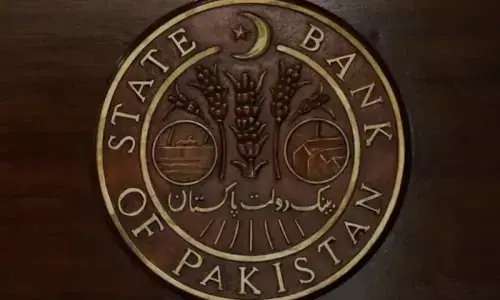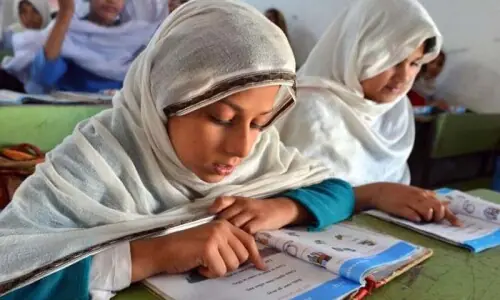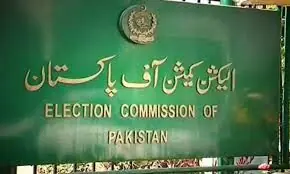language poet and teaches philosophy at Sindh University, Jamshoro
A Chain
Life
today
also
is
lonely
and
sad
just
like
it
was
yesterday,
my friend!
This poem by Imdad Hussaini was a new experiment in Sindhi poetry, reflecting a sense of forlornness and the boredom of monotonous life. Given features of the urban culture of the 20th century, Hussaini’s poetry, with its spirit of modernity and urban content, has become phenomenal for Sindhi literature. He precipitously changed the milieu of Sindhi poetry from rural to urban and from communal to individualistic expression.
But Tikhur, his hometown on the west bank of the river Sindhu, was the first to inspire Hussaini’s creativity. The soil of Tikhur, if measured in terms of creativity, is very rich, and has given many celebrated poets and prose writers who have augmented and ornamented Sindhi literature. But Hussaini did not just carry on the heritage and the legacy of the poets of Tikhur but espoused a new modus of Sindhi poetry containing the influences of modern poetry produced internationally.
The Old Building
I am like an empty building
In which all doors and windows
Lamps, cupboards, curtains,
Mirrors and all they ever reflected
Have been put up for sale
to be auctioned.
I am like an empty building,
The desires of its tenants
Are garbage and waste.
Searching in vain for a buried treasure
They have pulled out each and every
tile in the floor
And left it naked.
What is there left in me?
Nothing —
Bats hanging from the roof
Cakes of cow dung drying on the walls.
This poem is a metaphor for the shallowness of being, the commodification of the human essence, the barrenness and the waste of life. In it, the best of the modernist poets are reflected, T.S. Eliot and Ezra Pound, and Hussaini successfully manages to demonstrate the reality and sensibility of the 20th century.
The poetry of the late 1960s represents the changing dynamics of the political and social spheres. Those were the days when Hussaini’s identity was evolving as a new and bold voice in Sindhi poetry, not only because of his bohemian style and untraditional formats and diction, but mainly because of his selection of themes which made him distinctive in the galaxy of giants like Shaikh Ayaz and Tanveer Abbas and Niaz Humayooni and Shamsheerul Hyderi. Depression, the absurdity of being, the defeat of reason and the rise of fascism, a common threat to humanism, appeared as prominent themes in his poetry. His poetry was inspired by social movements, especially the nonviolent movement against the Vietnam War and struggles for independence in colonised countries. His poetic classic titled “Roots” depicts the civil rights movement of black Americans; this epic poem has not been completed yet though Hussaini has been working on it for four decades. In it, Hussaini tries to trace the pain of the cold blooded murders of the truth seekers, the lost battles of the marginalised and the endless wars fought by those who remain unknown.
Speak Truth, drink poison by becoming
Socrates of Athens;
Christ for the Cross;
Hussain for Yazeed,
Mansoor for the gibbet;
Sarmad for the sword;
Dodo and Darya Khan;
To lay down life for Sindh!
Martin Luther King for the assassin;
To die for a noble cause;
You lived for!
In every drop of blood
Red roses blossom!
And on the revolving globe
Hundreds of suns bloom;
Like a kaleidoscope!
Blood is red as a rose;
In blacks and whites;
He be the Lincoln of America
Or the Lumumba of Africa;
Effaced all distinctions of cast and creed!
....
The leafless trees on stony roads
Are for making coffins;
Or shackles for feet;
Or Cross for Christ;
Or logs for funeral pyre!
Even so, even so, even so;
The eyes ever aspire
To see the dawn of freedom;
Eyes fixed on the horizon;
As feet are marching, without volition;
On the painful path;
Cracked lips become thirstier;
Storms become fiercer;
Hunger ravaged hunger;
Pierced in eyes like an arrow;
The virgin rays of sun.
While the bohemian style of his poetry and personality that had made him distinctive among his contemporaries has now faded with time, it was this spirit that made Hussaini the icon of modernism in the early 1970s when the first volume of his poetry was launched.
The End
My roads
Turned
Twisted
Wandered
Broke off
Came to your door
And stopped.
Poem
Words
words
Tears
tears
Lines
lines
Waves
waves
The sea
the sea
No limit
no end
“The End” and “Poem” are from Hussaini’s first collection, Imdad Aahe Rol, (Imdad, a Vagabond) in which his experiments in form and content to convey a sense of individualism were welcomed by young readers and critics.
Poem
Life is a gas chamber
Just press the button,
Gasoline begins to circulate in the veins
Just light a fire,
Gunpowder in the bone marrow
Just light a match.
In place of the heart
There is a time-bomb ticking in the chest
Tick
tock
Tick
tock
Tick tock
All other sounds
Lost in the strong room.
The symbol of the UN
not the dove, but the vulture
And all ideals, all beliefs
Nothing
But a carcass.
“Life is a gas chamber”, “gasoline … in the veins”, and “gunpowder in bone marrow” are symbols of vulnerability, uncertainty and lack of authenticity of human life. These were not common symbols of rural Sindhi poetry.
Their use by Hussaini was new, his metaphorical ventures were innovative and effective and his syntax original. Free verse is considered independent of metre, rhyme and pattern and hence stood as a symbol of modernism. Hussaini believes that “free verse is like an organic life which has beginning, middle and an end.”
His second collection, Hawa Je Samhoon (In Front of the Winds) came out in 2000, almost 40 years after his first volume. In it, Hussaini appeared with a mellowness of thought and copious poetic skills, but the sensitivity and passion of the first collection had vanished with the winds. His third collection, Kirne Jehro Pal (A Sparkling Moment) was published in 2012. Novelty of thought and poetic expression is rare in these last two collections. In them Hussaini twists the classic and the folk, the traditional and the conventional, but the canvas of his poetry is very much located in the land. Hussaini says that it is not an essential change in his disposition but a reflection of what has changed in universal trends, thus denying becoming conformist and conservative and abiding by societal convictions in his last two collections.
However, the flavour of love and romance has remained a popular theme in Hussaini’s poetry, reminding the readers of the essence and sensitivity of Nizar Qabbani of the Arab world.
Poem
The sea asks me:
“Where is she, the one with deep blue eyes,
Why are no pearls formed in the shell,
Why don’t the raindrops sing malhar?”
The moon asks me:
“Why hasn’t the sun god got up from his slumber?
Behind which wall
Is the soft wind held captive,
Why don’t the lotuses smile?”
You may not talk to me, avoid meeting me
But why punish the sea and the moon?
The sea tosses and turns for you
The moon keeps awake night after night, just for you.
Tales of metropolises have been an enduring theme for modernist poets and writers. Cities are dealt with by poets as symbols of social injustice, misery, poverty and political intrigues, but Hussain’s eye explores the new dynamics of cities as bleeding wounds of the soul. He wrote “Shehar” (City), an elegy about Hyderabad, after the ethnic riots of 1988. It was his second epic poem and contains a great sense of history without glorifying the heroes or the warriors. Instead, it looks at the victim of ethnic chauvinism killed in the streets of the city. The poem echoes the mourning voice of a city crying for her sons. His poem “The Attack” could be seen as a narrative of any metropolis imagined as an organic entity.
The Attack
Time led the ambush and the dagger of black nights
Was plunged to the hilt in the world’s breast
And as usual all energy was spent.
The call to prayers from the mosque
Cried and then became quiet,
The figure of the Buddha
Fell face down in the museum
The flute was shattered to pieces
All the tunes, songs silent.
A wise man from Greece
Drank hemlock.
A virgin Mary
Left a fatherless child
On the church doorstep.
The city’s dead body was covered
With a black chadar.
The darkness of the grave
Clung to every soul,
From every direction advanced
The monsters of pain and loneliness
And in the lanes
The desolation-dacoits and silence-thieves
Entered.
Cold, fierce winds
Knocked on doors
So that some people at least
Should join the mourning for the city
And some screams should join the festival of Hell,
But the clock tower went on beating itself
Just to break the silence of walls and houses.
On one side of the widowed road
Blind signals stood waiting.
Mad dogs
Continued to tear off theirs own flesh.
Nobody knows where
The footfall echo went off to sleep,
And nobody knows where
The jingle of the bangles died,
And nobody knows where
Hearts were extinguished inside the rib cage,
And nobody knows where
The springs of the eyes ran dry
And nobody knows where
The music of truth and beauty were destroyed
And all the decorations were burnt in
the funeral pyres
And nobody knows where
All the men in the city were arrested
And nobody knows where
The wayward steps of the dancing woman in the prison
Danced, laughed, cried and were silent
And nobody knows where
The waking colours went to sleep
And nobody knows where
The heart of fragrance burst open.
The stench of choking gutters on the royal road
How can one even breathe in this hell?
And nobody knows where
The eyes of the saki started crying
And nobody knows where
The cup vomited.
The night was the hangman
It went on drinking the blood of wine
The night was murderous, cursed, it was fury
The night was poisonous, stonehearted,
it was cruelty.
There was nobody to cry on the death of the city,
Nobody to cry, nobody.
Who will bathe this dead body with
holy water
Who will give this dead body a shroud from the Ka’ba
Who will cry and lament on this dead body
Who will kiss the forehead of this body
Who will have a last look of this dead body
Who will move the strands of hair from its cold cheeks
Who will put a wreathe of flowers
Who will burn incense
Who will lament, who will read out the elegy
Who will bow their heads out of respect
There must be some friend and companion of the city
There must be some sharer of secrets
of the city
There must be some beloved of this city
There must be some token of the days of youth in the city
There must be some smile in the children of the city
There must be some lullaby for the children of the city
Then after a while — the moon in chains
of stars
Was taken out of the prison cells,
Scaffolds were set up in the sky
The mind was put into the coffin of memories
The Baghdad of the heart was ransacked
by Mongols
The hairline of Sindh was in shambles
The Jamila of drunken eyes had no tears,
no laughter
Soaked in blood was the Congo of the chest
The Dajjal of the atom bomb was unleashed on Hiroshima
The Surraiya of desires was given a divorce
The happy Kennedy of youth was hit
by a bullet
In the morning, the lotus lamps
of the Taj Mahal began to cry
This is what happens to those whose sin
is love,
Every supporter of the truth suffers
these accusations,
Those who stay constant in love
Have all this to bear.
(“Roots” translated by Saleem Noor Hussain; all other poems translated by Asif Furrukhi and Shah Muhammad Pirzado)


